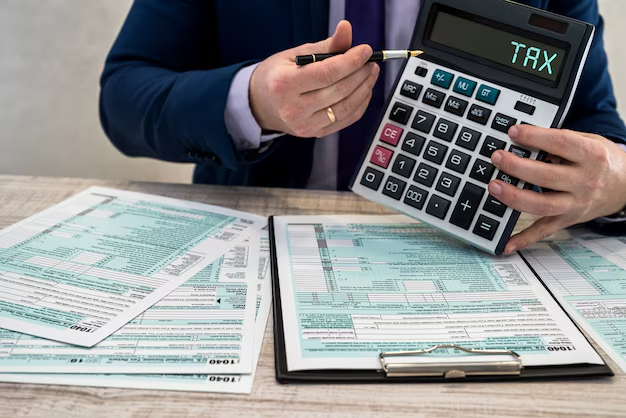How Does New Jersey State Sales Tax Affect You in 2023?
You might be surprised to learn that each state handles sales tax differently, and New Jersey is no exception. Whether you're a New Jersey resident, business owner, or just someone passing through, understanding the nuances of New Jersey's sales tax can save you time, money, and potential headaches. Let's dive in to explore everything you need to know about New Jersey state sales tax.
Understanding the Basics of New Jersey Sales Tax
New Jersey imposes a sales tax on the sale of most goods and services. But how much is New Jersey's current sales tax? As of 2023, the state sales tax rate is 6.625%. This means when you make a purchase, you may be charged an additional 6.625% of the sales price, depending on whether the item or service is taxable.
What Items and Services Are Taxable?
The earlier mentioned 6.625% sales tax applies to most retail sales but not all. Here’s a quick look at some typical taxable and nontaxable items:
Taxable:
- General merchandise (e.g., electronics, clothing)
- Prepared food and beverages
- Certain services like cleaning, landscaping, and more
Nontaxable:
- Most groceries
- Prescription medications
- Certain farming and manufacturing equipment
Understanding which items are taxable can prevent unexpected costs at the checkout and ensure you're budgeting accurately.
Special Considerations and Exceptions
Urban Enterprise Zones
New Jersey offers the Urban Enterprise Zone program, which provides tax incentives to help stimulate economic growth in designated areas. In these zones, businesses may charge a reduced sales tax rate of 3.3125%. This can be a significant benefit to both consumers and businesses located within these areas.
Sales Tax Holidays
Occasionally, New Jersey might enact sales tax holidays where certain items are temporarily exempt from sales tax. While these are not a regular occurrence, keeping an eye out for these holidays, often tied to back-to-school shopping or emergency preparedness, can be an excellent way to save money.
Specific Exemptions and Deductions
New Jersey also allows specific items to qualify for exemptions, such as:
- Energy-saving appliances
- Clothing purchased for resale
- Some manufacturing inputs
Understanding these exemptions can aid businesses in reducing their tax liabilities and help consumers make informed purchasing decisions.
Sales Tax for Online Purchases
Today’s shopping often happens online, so the question remains: how does New Jersey handle online sales tax? According to the state law, any retailer, regardless of its physical presence in New Jersey, must collect sales tax from consumers if their sales exceed a particular threshold. This aligns with the precedent set by the U.S. Supreme Court in the South Dakota v. Wayfair case.
What Does This Mean for Consumers?
For New Jersey consumers, this typically means you should expect most online purchases to include New Jersey sales tax, simplifying your end-of-year financial planning responsibilities such as use tax obligations.
Navigating Sales Tax as a Business Owner
For business owners, understanding and complying with sales tax regulations is vital. Here are some essential points:
Registration and Collection
- Sales Tax Certificate: To legally collect sales tax, you need to apply for a sales tax certificate through the New Jersey Division of Taxation.
- Filing and Remitting: Businesses must properly file returns and remit taxes collected to the state on a regular basis, typically monthly or quarterly. Failure to comply can lead to penalties and interest charges.
Record Keeping
Maintaining detailed records is necessary for accuracy during filing. These records include:
- Sales invoices
- Resale and exemption certificates
- Any documentation pertaining to online sales
Good record-keeping helps safeguard against potential audits and ensures accurate reporting both for the business and the state.
Potential Changes and Updates
Tax laws can evolve, with legislative changes potentially impacting the sales tax landscape. Staying informed about New Jersey’s legislative sessions can help consumers and business owners anticipate and react to any changes in tax law that might affect them directly.
Practical Tips for Navigating New Jersey Sales Tax
To summarize, here are key takeaways to help you effectively manage New Jersey's sales tax:
- 🛍️ Shop Smartly: Know which purchases are taxable and plan accordingly to make the most out of any possible exemptions.
- 💼 Business Prep: If you own a business, ensure you're registered, understand your filing responsibilities, and maintain organized records.
- 📚 Stay Informed: Keep an eye out for updates on sales tax holidays and legislative changes.
- 🌐 Online Awareness: When shopping online, be aware that New Jersey sales tax may still apply.
Understanding the sales tax landscape helps in making informed purchasing and business decisions. Although taxes are an inevitable part of financial life, simplicity in navigation comes with awareness and preparation.
Bringing It All Together
Sales tax is a crucial component of New Jersey’s economic framework, impacting both consumer behavior and business operations. Whether you are making purchases, selling goods, or simply planning a budget, knowing the ins and outs of New Jersey’s sales tax regulations can provide financial clarity. Staying informed and proactive not only ensures compliance but also empowers you to make financially savvy decisions. As you navigate the complexities of New Jersey sales tax, remember that the knowledge you gain is a tool that can positively impact your economic well-being.

Related Topics
- a Sales Tax Is a Type Of
- Can I Deduct Vehicle Sales Tax On My Federal Return
- Do Gross Sales Include Sales Tax
- Do I Need To Collect Sales Tax For Selling Online
- Do You Pay Sales Tax At The Dealership Or Dmv
- Do You Pay Sales Tax On a House
- Do You Pay Sales Tax On Groceries In Washington State
- Do You Pay Sales Tax When You Buy a House
- Does Alaska Have a Sales Tax
- Does Alaska Have Sales Tax
